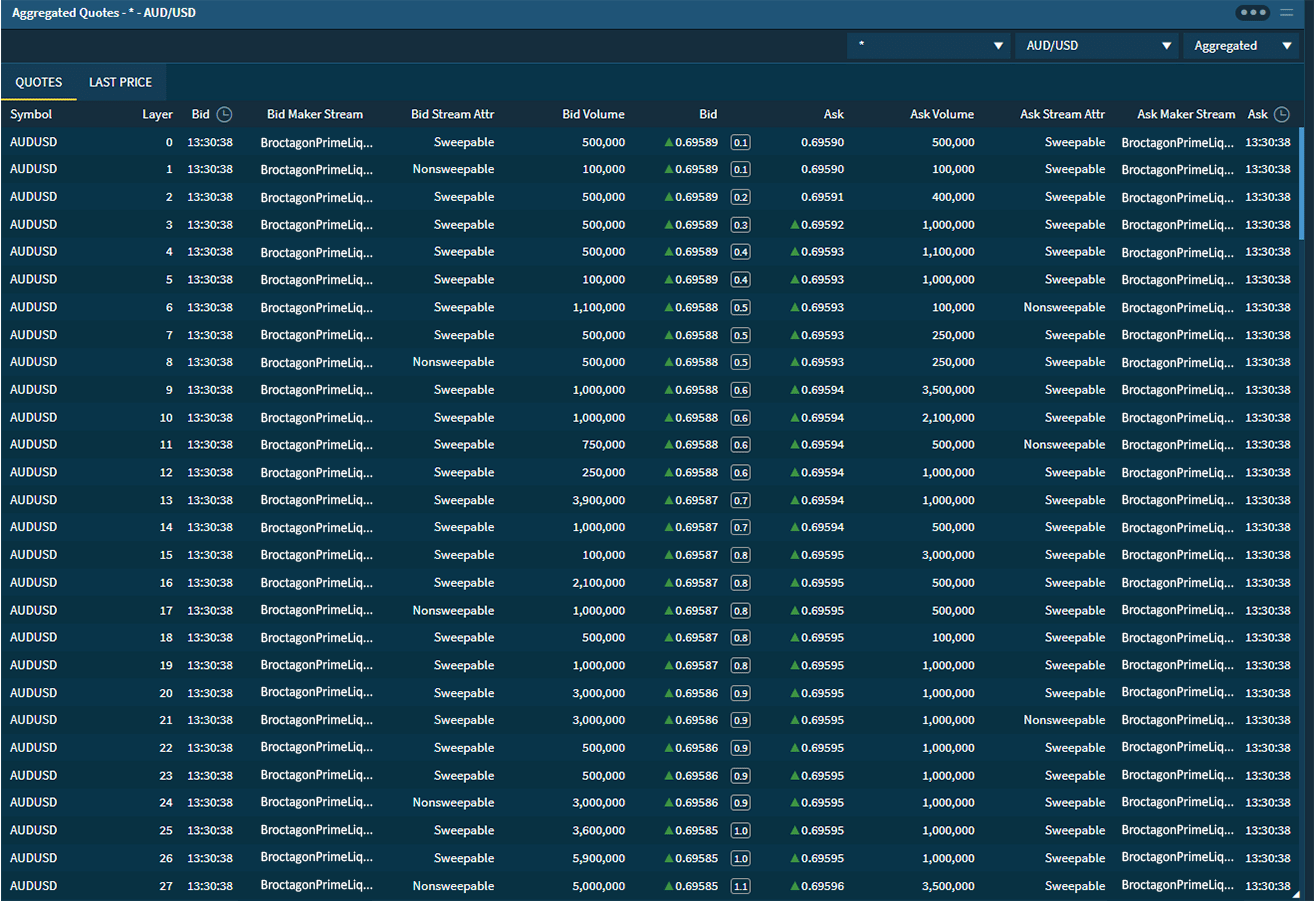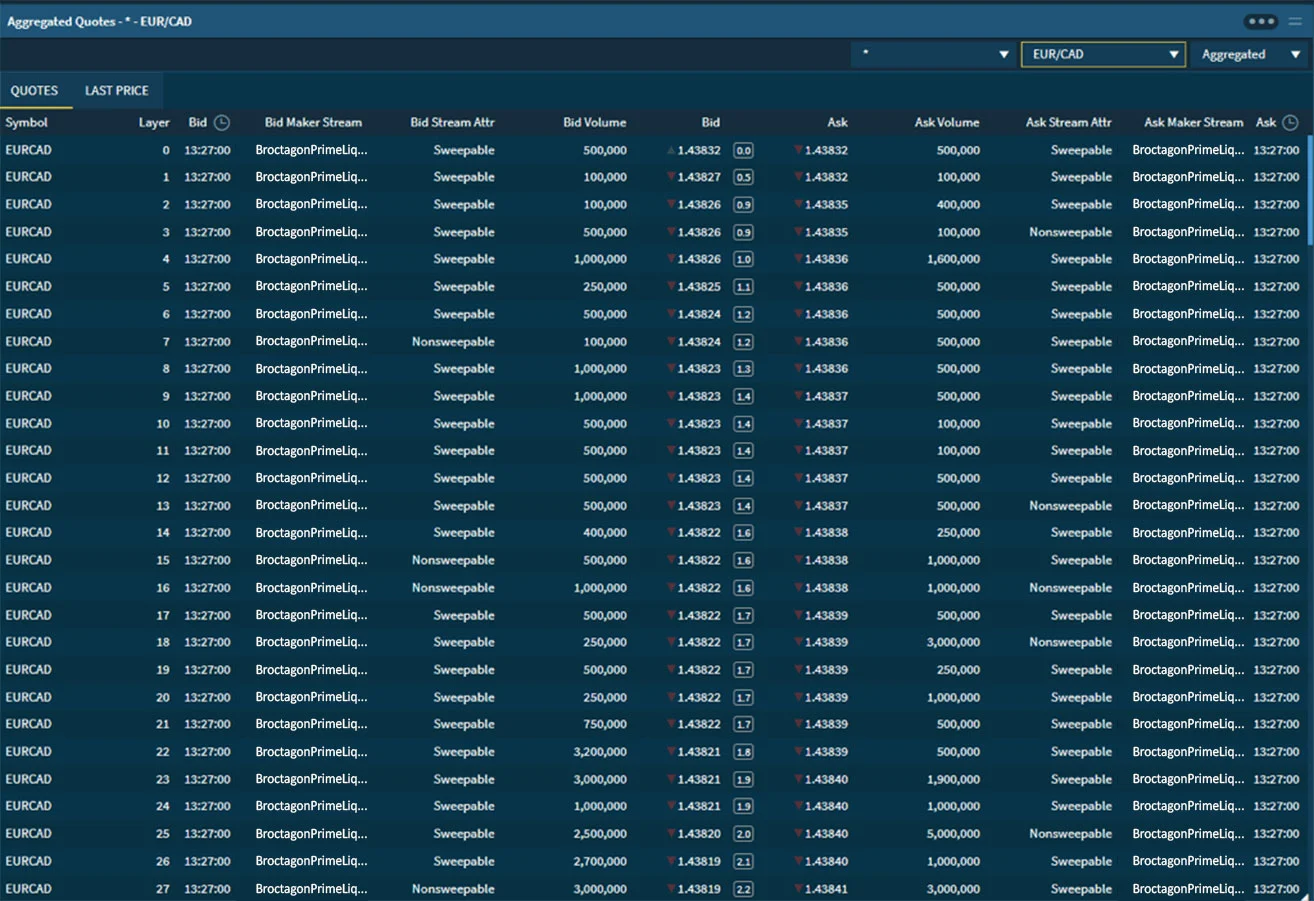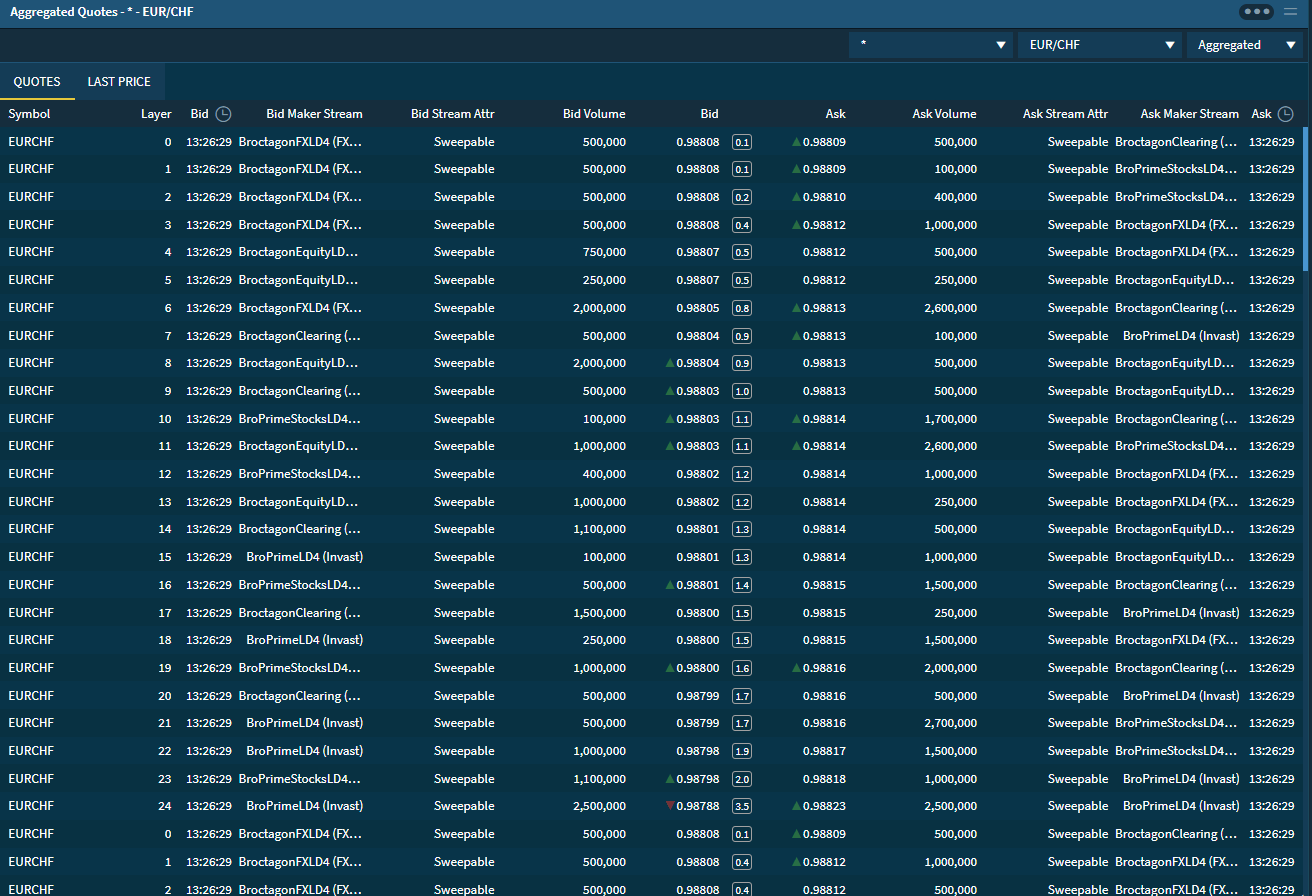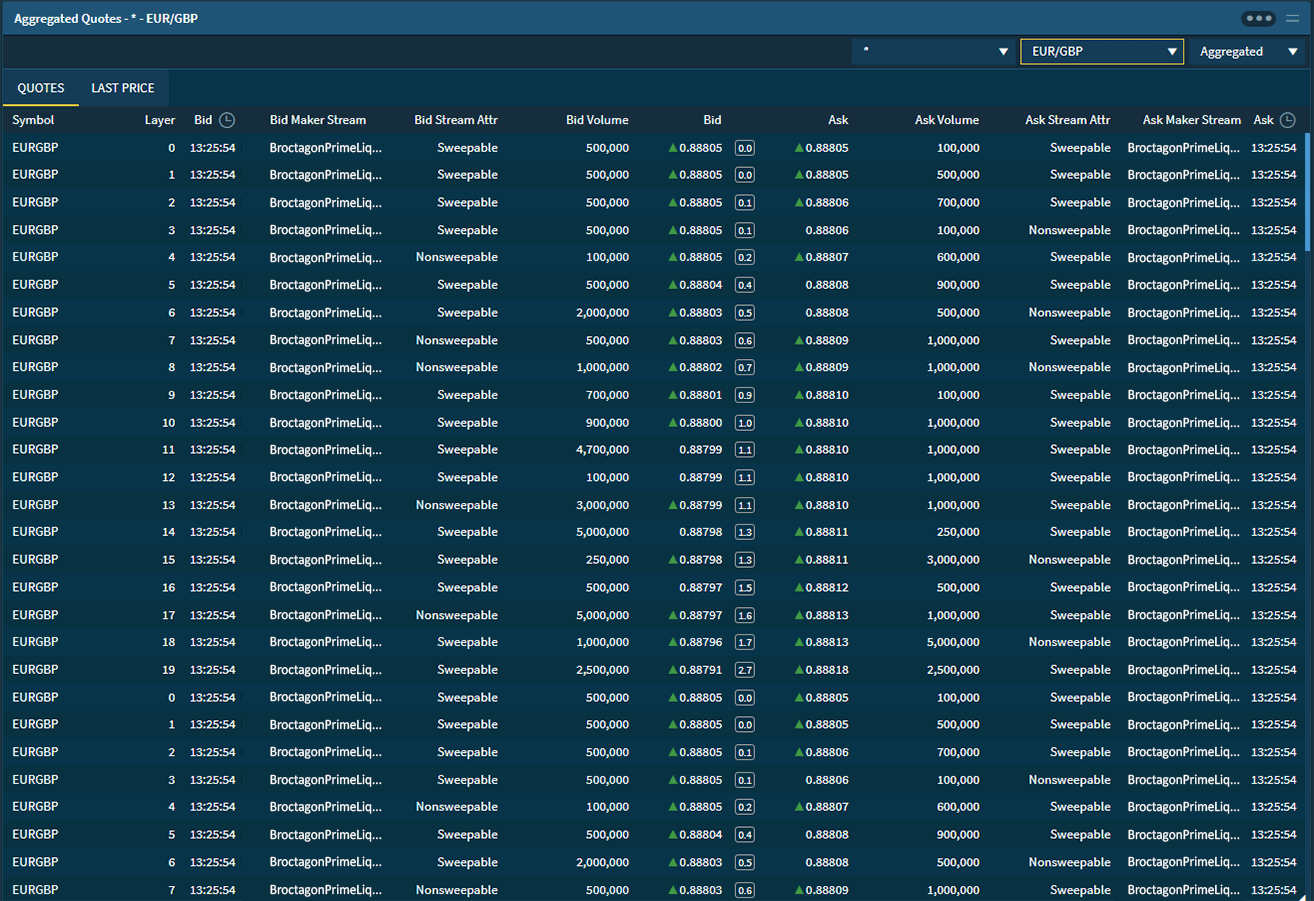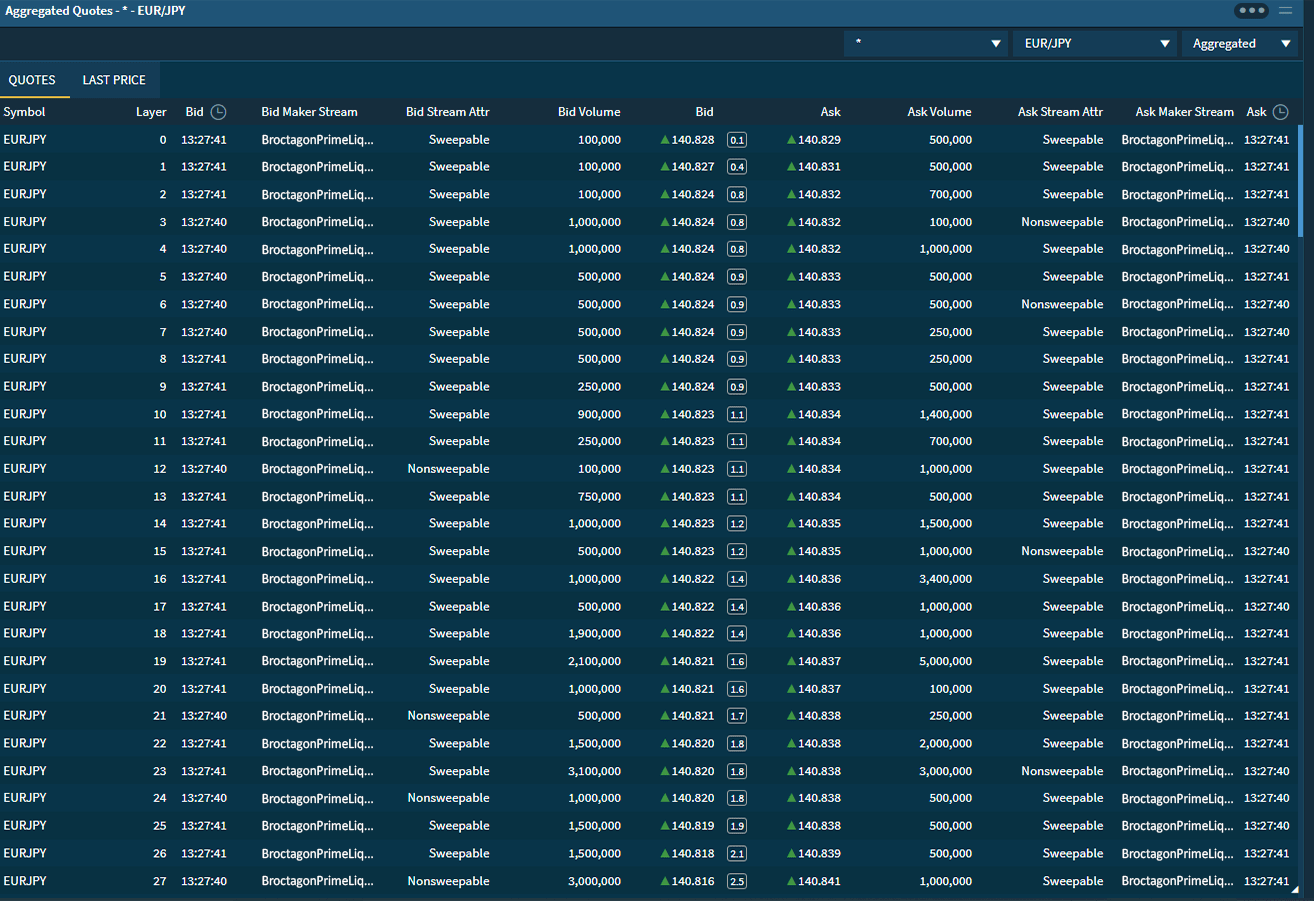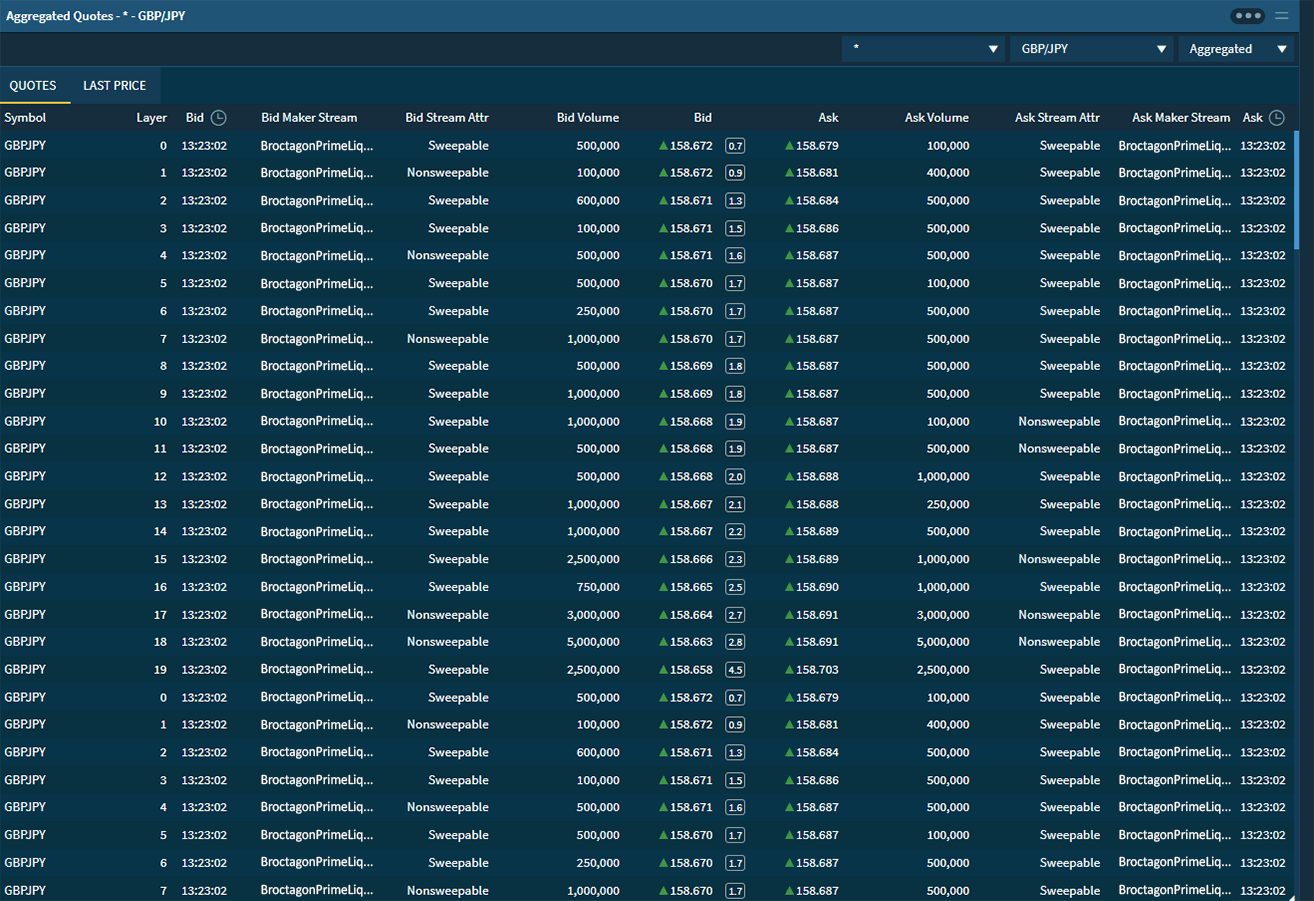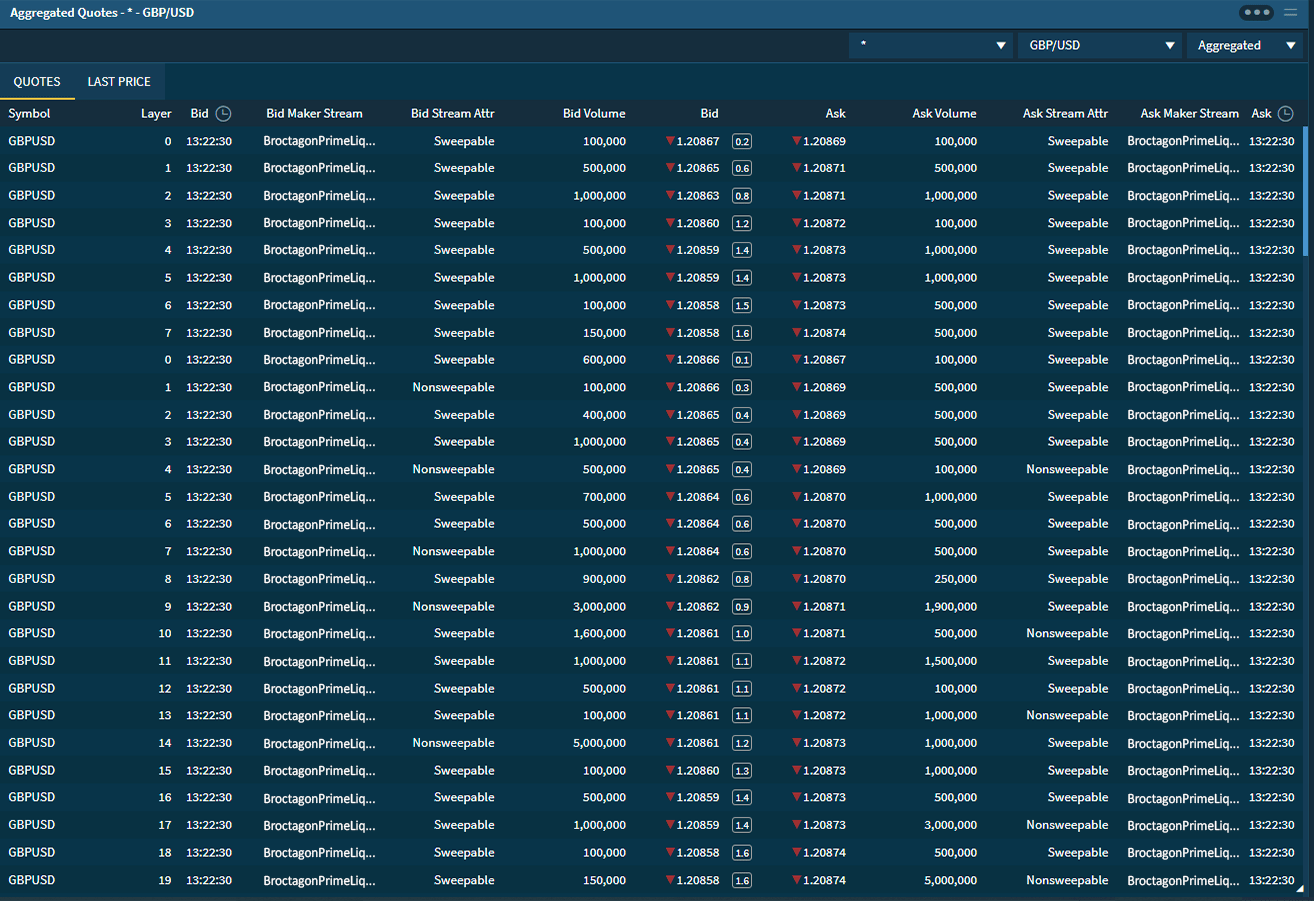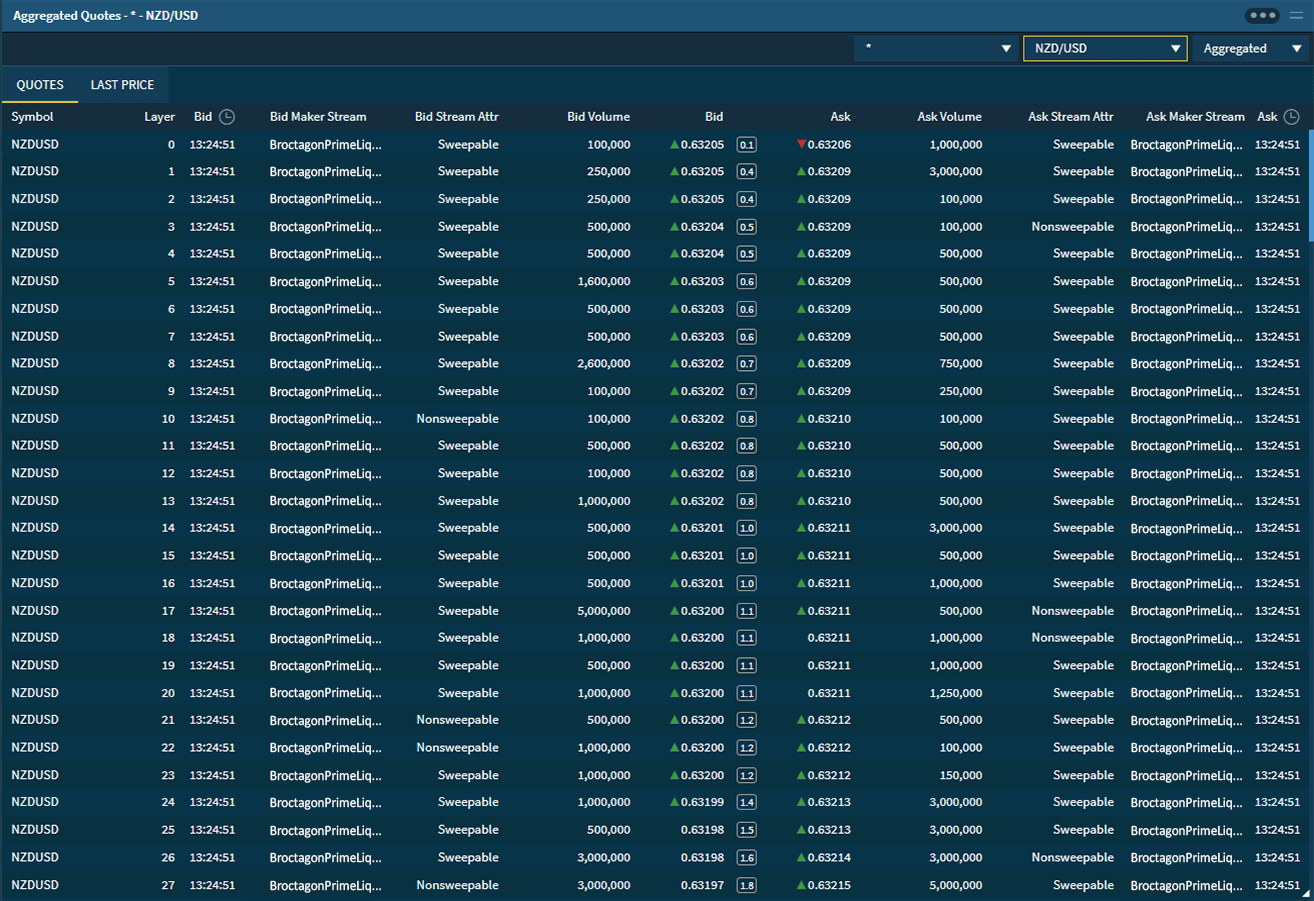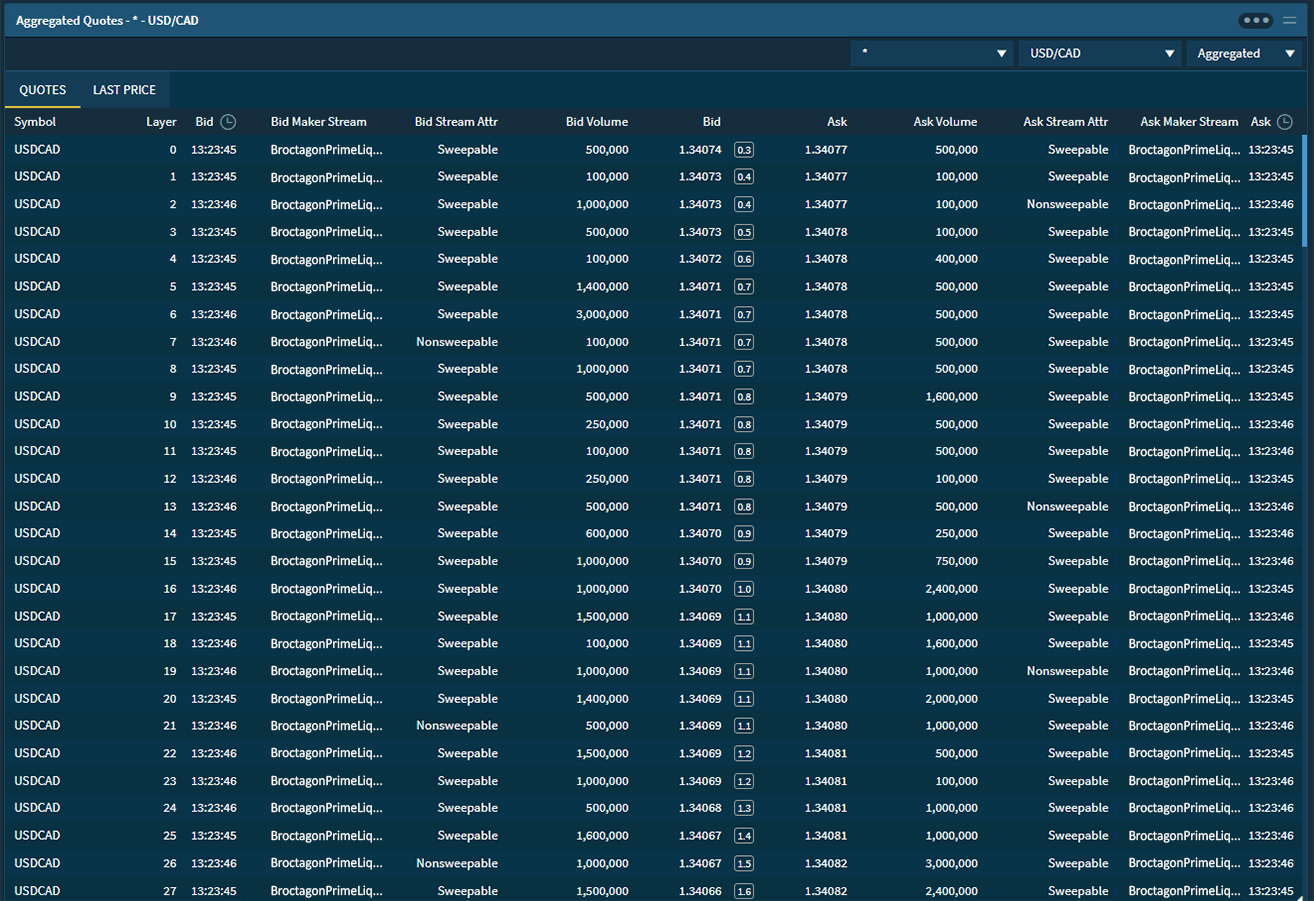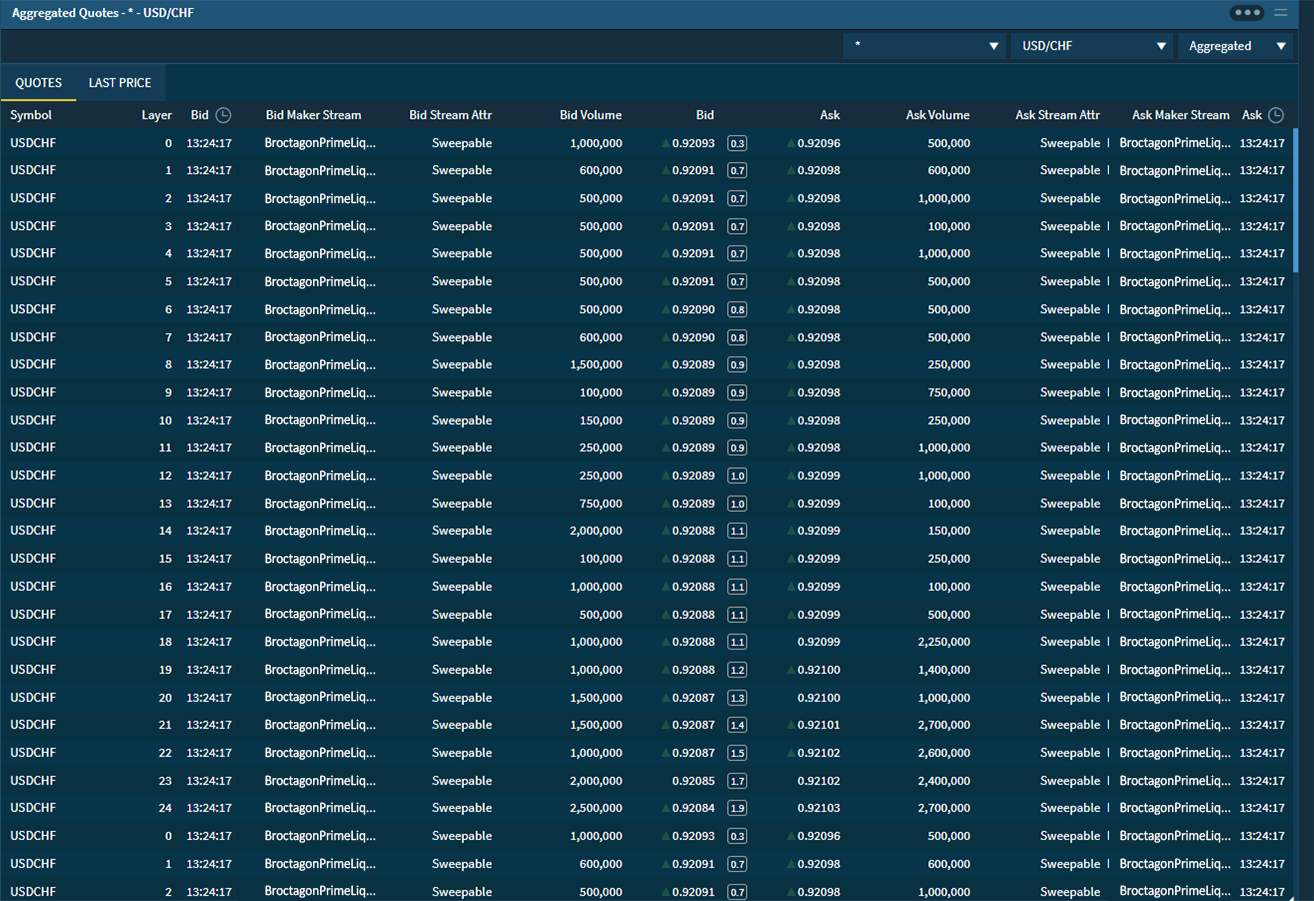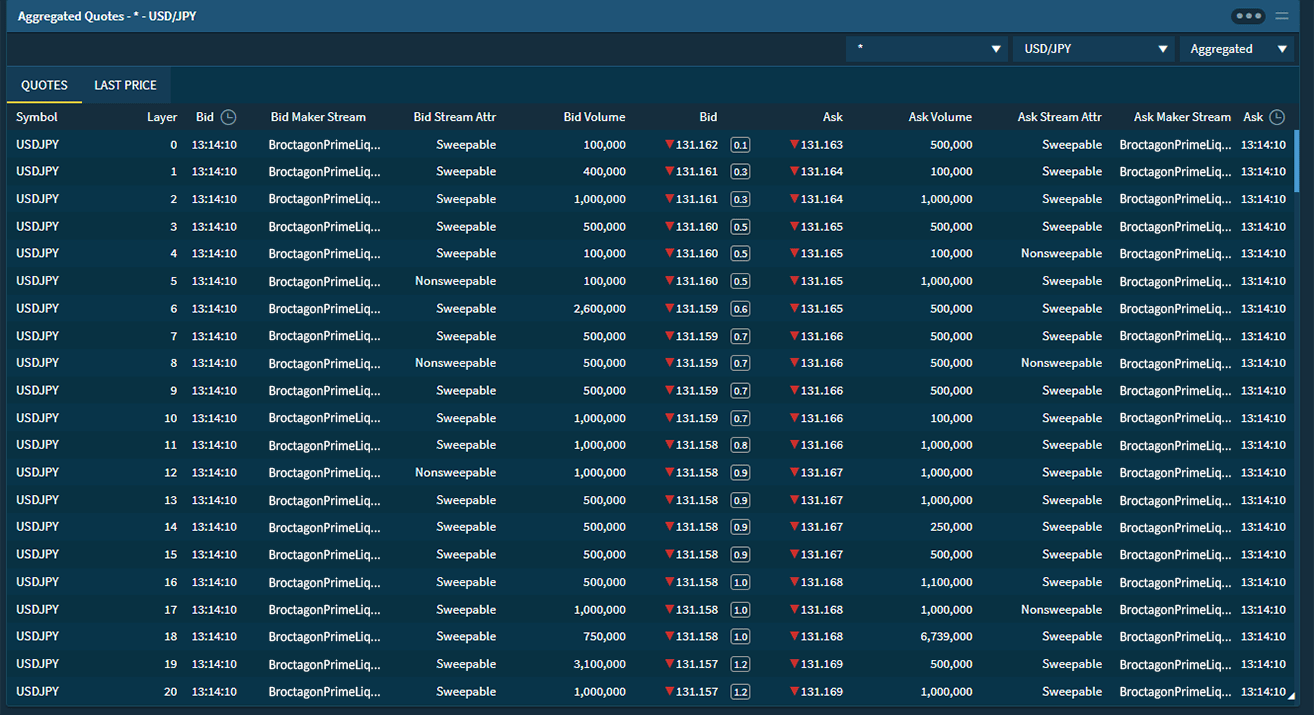Radio Interview on MoneyFM 89.3’s Soul of Business: Women Leadership and Trends in FinTech

Cecilia Chan, our Head of Liquidity (Asia), Broctagon Fintech Group was invited on MoneyFM 89.3 to share on her perspective of being a woman in the predominantly male-led FinTech sector and the trends she expects to see in the future.
Full Transcript
Melissa: I’m Melissa Hyak sitting in for Clarissa Montero for the workday afternoon. I’m joined on the line by Cecilia Chan, Head of Liquidity Asia at Broctagon FinTech Group, a specialist in multi-asset liquidity and brokerage technology. Cecilia has worked with major financial institutions in Asia, including at Phillip Futures, SGX and Hang Seng Indexes. With some 20 years experience in the sector, she has witnessed, and is now helping to lead transformation in the sector.
Melissa: Hello, Cecilia, welcome to the show!
Cecilia: Hi Melissa, thanks for having me on the show.
Melissa: Not at all, thank you for your time, but first of all tell us a little bit about Broctagon. It’s a fairly young company, 10 years old?
Cecilia: Yes, so Broctagon has been established for 10 years now – 12 years to be exact. Broctagon specialises in providing multi-asset liquidity, FinTech solutions, and we do have certain global presence in China, India, Russia, Cyprus, and Thailand.
Melissa: And a lot of us oftentimes when we look at a work title we assume we know what it’s all about. So you’re the Head of Liquidity – maybe if you could just let me know what exactly do you do there?
Cecilia: I take care of providing or consulting for clients who want to get liquidity or foreign exchanges. I provide some kind of consultancy for them and tell them where where they can actually get that.
Melissa: You’ve been in the industry for a fairly long time – 20 years thereabouts?
Cecilia: Yeah.
Melissa: Right, so I think in the last 10 to 15 years this was when there’s been the greatest, I suppose, digital revolution going on in the financial services sector. So you’ve seen the transition from human trading to digital trading. As one of the players going through the transformation, what were the kind of challenges that that you’ve faced?
Cecilia: I think it’s very different from the 90s and right now. In the 90s, when you know, with the wide adoption of computer and the internet, we were all overwhelmed by the efficiency of trading. We transited from trading floors to computer trading – so that was a very different transition altogether. Compared to now with everybody already on computer trading, now we get even more efficient and we are experiencing a high influx of new product that is coming out because of digitalization. So the challenge is that the technology changes all the time, and it’s very, very hard to keep up with what’s going on at the other side of the world. So we have a very big challenge to keep up with what regulators are thinking about, what the other competitors are thinking about, and what the users are thinking about.
Melissa: You talked about digital assets, it’s been drawing a lot of attention from traditional financial institutions and I think from regulators as well – a lot of new ones coming out. What kind of trends are you seeing that’s coming up in this space?
Cecilia: Yes, so we are seeing a lot of adoption by the traditional financial institutions. We can see that the digital assets Assets Under Management (AUM) that is being adopted by the institutions, are increasing at a very dynamic pace. We saw that it was only about $25 billion in 2020 and in 2021 we are seeing close to $100 billion. So it is increasing at a very alarming speed, but it also shows that the institutions are also coming to be very comfortable with the regulations that’s coming in. They are navigating the space, and they want to be part of this growth.
Melissa: But do you see consumers being educated enough or informed enough about these digital assets to be actually trying to dip their toes into it?
Cecilia: Yes. So there are a lot of channels of information for sure, and we see the global crypto users have already exceeded 220 million by June 2021. And this is growing even faster. I would say we might even reach 300 million by the end of 2021. And I guess the users are seeing the volatility in crypto – a lot of hype around crypto.There’s a lot of media coverage, a lot of social media that is sharing, and we have a lot of Defi platforms that are coming up, and it seems like everyone has some kind of information but that’s not all adequate, that’s why I think regulation and investor protections are actually very important in this aspect.
Melissa: And that’s actually still in, I wouldn’t call it infancy, but it’s still-
Cecilia: It’s work-in-progress.
Melissa: Yes, it’s very much a work in progress right?
Melissa: Okay so maybe while that’s that’s happening, let’s go back to looking at working in the sector. Earlier, you talked about how you know there was a big difference in how trading was done before and now everything is digital. Yes, you become more efficient, but what kind of skillsets or qualities would a trader or person like yourself, working in the financial services industry – what different kind of skill sets would we need now that we didn’t need before, and what continues to be relevant?
Cecilia: I guess in the space of trading, we definitely need the same set of skill sets.
Melissa: For example? Sorry to be obvious.
Cecilia: Yes, so we still need to do our homework, we still need to read the markers. I mean in the space of, let’s say you’re trading in shares, in futures, even in fixed income, you still need traditionally the the same type of skill sets. But when we deal with digital assets, it comes with another set of information. We need data analytics, we need aggregation, we need a lot more information, because it’s still a very young asset class, and there’s a lot out there that is not being consolidated into a single data point. Not like shares and futures – they’re all very, very mature now and that’s where we are seeing the challenge. As a trader for the new asset class of the digital assets, we have to be more vigilant in what kind of info or data that we’re getting.
Melissa: So would you say that while we are a lot more efficient these days – you can get a lot more done in a much shorter span of time, that if there were any issues, it would be also more challenging to try and wind it back or to repair or to do the damage control again because of the split second sort of activation that goes on?
Cecilia: Yes, so unfortunately I guess digital assets are really all running on blockchains, and blockchains are actually not so reversible like you can have intervention of regulators that comes in, steps in, and says “Oh, there’s a spike and we’re going to control it.” So in the world of Defi and even in blockchain, or the crypto, or digital assets class, we do have this portion that we are unable to resolve very efficiently now. But I think as the space starts to mature, we will all know how to handle it in time.
Melissa: Well we can keep our fingers crossed too – that’s a very old school but there’s something we can do. Okay, let’s look at financial services in general. We did promise to talk about women in leadership in this sector. It’s still very much known as a gentleman’s club across the world, not just in this part of Asia, and that’s especially obvious in leadership positions like C-suites etc. So why do you think that that continues to be the case in this era, the 21st century?
Cecilia: Well, I think there are female-dominated sectors, but for the sectors that I am in, coincidentally they have always been male-dominated. So when I was in the futures and options space then, it was very manual and there were a lot of males, you needed a lot of shouting, a lot of presence. So the males definitely would have the advantage over a female. But in this space, in this current digital asset space, there’s a lot of technicality surrounding it, and somehow females don’t seem to be really- I mean, not to be stereotyping, but then I guess I myself is not a very technical person. I would definitely be more of an emotional or sociable type of person.
Melissa: Yes, so you would say that it’s from your observation at least right from your own experience that there is a strong element of perhaps personal interest, but would you would you say that there have that’s been observed among your colleagues in the industry, perhaps that there could be a certain sort of ceiling that’s imposed on women or where there is a an opportunity that somehow, all things being equal, the opportunity will go to the males?
Cecilia: I will not say so because in this industry, I do see a lot of females coming into the game, especially the younger generation. They are very tech savvy, so I don’t think that it would be super male-dominated – there might be a higher percentage of females coming into this space, especially in the RegTech world, where females generally have more patience in dealing with regulations.
Melissa: So what you’re saying is, in a way, technology is helping to close the gender gap in in this sector?
Cecilia: Yes, correct.
Melissa: But as you were making your way up, did you find that you needed to be in certain respects more like a so-called man in order to succeed?
Cecilia: In certain sense, yes and I think it is also very important for me to have very supportive bosses and management, as well as colleagues, which have supported me coming along in my career. So management has given me a lot of opportunity and let me explore a lot of new things that were not in my job scope when I was joining them. So I did get a lot of exposure, and I’m thankful for that.
Melissa: We’ll give a chance to the young female aspirants to the FinTech sector to say thank you to you for your tips. What advice would you have for them entering this sector, hearing obviously a lot about oh it’s an old boys club, and this and that? What kind of advice would you give them?
Cecilia: I would think that for a female to come into this space, I do not think that it should be a blocker to come into a male-dominated space. I think females should be equally empowered and very educated to come into this space but I do advise the young females out there to think for yourself – it’s okay not to follow what females should be doing or traditionally thought that females should be doing. It’s okay to go off the path and know what you actually want in life and what you want to achieve in your career and secondly, I guess this advice would be for all people out there – you should be reading, learning, absorbing knowledge like a sponge, and not be resistant to changes and read more and you will get to know more.
Melissa: Exactly that. Actually makes a lot of sense, thank you for that. But I have one last question to go – we have about a minute for your answer. What do you look forward to in terms of the industry, both on a personal and professional level?
Cecilia: It’s a very good question actually. I actually hope to create a certain impact on traditional finance, especially the future and options industry where I came out from. I have seen this industry evolve a long way from the trading floor to computer trading, and up to now I think there’s a lot to be improved on. Where this industry has been a little bit of a standstill, so I do hope when I come into this blockchain and digital asset space, I really hope to create an impact and make a difference, help them develop, and be more sustainable in the long run.
Melissa: Well, you managed to kill two birds with one stone with the answer. Thank you so much Cecilia! Remember the name Cecilia Chan, she will be making waves soon in the FinTech sector. Cecilia, thank you so much again for your time.
Cecilia: Thank you, Melissa.
Melissa: Thank you, all the best for the rest of 2021!
Cecilia: Thank you.
Melissa: We’ve been speaking with Cecilia Chan, Head of Liquidity Asia, Broctagon Fintech Group. I’m Melissa Hyak for the workday afternoon.
About Broctagon Fintech Group
Broctagon Fintech Group is a leading multi-asset liquidity and FX technology provider with over 15 years of global expertise. We empower forex brokers with performance-driven, bespoke solutions — anchored by our flagship AXIS FX CRM, institutional-grade liquidity, and prop-trading solutions. Trusted by 350+ clients in 50+ countries, we deliver the technology that keeps brokerages ahead of the curve.


